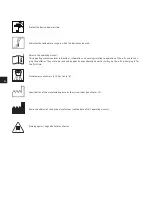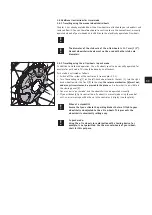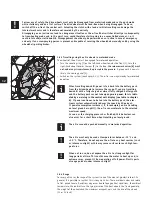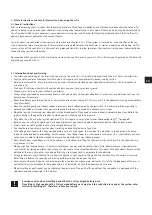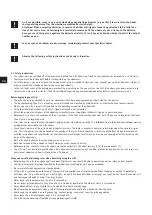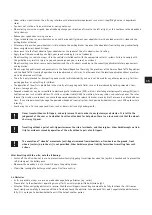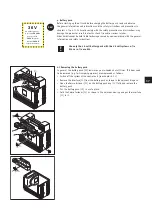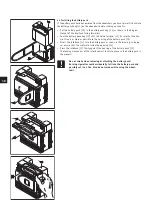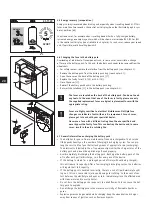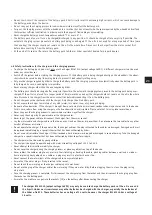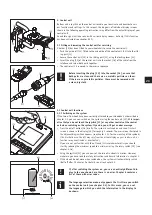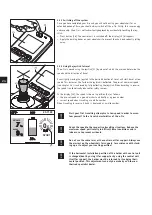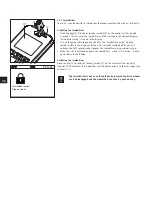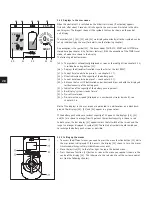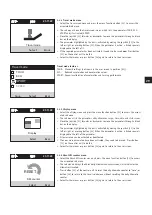
16
3.5 Hazardous areas and hazardous situations
•
The wheelchair user must decide in each case whether it is safe to navigate the intended route based on factors such as their skill level
and their physical strength.
•
Before undertaking a trip, check the e-fix wheels for damage and proper inflation. Also, check the charge status of the battery pack and
that the warning signal on the control unit is working correctly.
•
These safety checks and the personal experience of the wheelchair user are of particular importance in or near the following hazardous
areas, the navigation of which is left to the judgement and risk of the e-fix user:
- Quay walls, berths and marinas, paths and areas near water, bridges and dykes without railings
- Narrow footpaths, gradients (e.g. ramps and driveways), narrow paths along slopes, mountain paths
– Narrow and/or steep/inclined paths along main and side roads or near precipices
- Paths covered with leaves, snow or ice
- Ramps and lifting equipment on vehicles
- Paved paths/roads
When cornering or turning the wheelchair on gradients or inclines, the centre of gravity of the wheelchair may
be shifted leading to a risk of the wheelchair tipping over to the side. As such, proceed with extreme caution and
reduce your speed.
Special caution is required when crossing roads, crossroads and level crossings. Never cross rail tracks in roads or
at level crossings by travelling parallel to them, as the castors of the wheelchair could get stuck in the rails.
Proceed with special caution when driving over ramps or lifting platforms of vehicles. Before lifting or lowering
the wheelchair on the ramp or lifting platform, park
the e-fix at a safe distance from the kerb and switch it off.
The parking brakes on the wheelchair must also be applied. This prevents inadvertent movement or travel com-
mands.
Never use your wheelchair directly at the edge or close to the edge of a ramp or lifting platform, instead leave
a sufficient distance.
If the ground is wet, tyre grip may be poor, leading to a risk of slipping. Adapt your user behaviour accordingly
and never travel with worn tyres.
Please note that when travelling downhill the brake path of the e-fix may be significantly longer than on level
ground depending on the speed and gradient. Therefore, adjust your speed accordingly.
When navigating uphill gradients, downhill gradients or steep ramps, the backrest of the wheelchair (if it is
adjustable/foldable backwards) must always be in the most upright position to prevent the system from tipping
onto the anti-tippers.
When navigating paved paths/roads, it is necessary to exercise greater caution, as the castors of the wheelchair
could get jammed in the grooves on these surfaces.
In case of fire or smoke, wheelchair occupants are at particular risk of death or serious injury, when they are not
able to move away from the source of fire or smoke. Lighted matches, lighter and cigarettes can cause an open
flame in the wheelchair surroundings or on clothes. Avoid using or storing the wheelchair near open flames or
combustible products and do not smoke while using the wheelchair.
!
Summary of Contents for e-fix eco
Page 1: ...Gebrauchsanweisung e fix eco DE Instructions for Use e fix eco EN...
Page 3: ......
Page 4: ......
Page 52: ...47...



